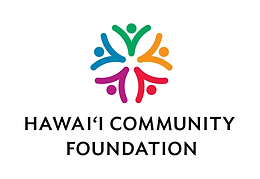Mentoring Matters.
`A`ALI`I Mentoring empowered by Big Brothers Big Sisters Hawai`i helps young adults from underserved communities navigate and persevere in higher education. Many young people from communities underrepresented in higher education face the typical challenges related to the transition to college and also daunting difficulties including academic, financial, familial, and personal hardships. They may not be aware of or have access to financial, educational, and career resources and opportunities. As a result, many young people do not achieve their higher education goals.
With the support of a trained volunteer adult mentor, a young person can benefit from a non-judgmental, caring, and empathetic advocate. Mentors can share experiences, offer encouragement, and provide fresh perspectives. Mentors can also model leadership and interpersonal and executive-functioning skills -- essential competencies that enable young people to reach their full potential.
Why Mentoring?
Persistence Rates in Higher Education are Low.
While overall trend in the higher education landscape in Hawaii is improving, the persistence rates (as evidenced by low completion rates) are still low. By helping improve persistence in higher education through mentoring, `A`ALI`I Mentoring empowered by Big Brothers Big Sisters Hawai`i believes that more options and socio-economic mobility can be accessible to young people from underrepresented and economically disadvantaged communities.
Mentoring can improve outcomes for young adults.
Research shows youth with mentors are more likely to be successful in school, to be leaders in their communities, and to be more likely to enter young adulthood with opportunities for ongoing education and career choices.
By sharing their experience and offering encouragement, mentors also teach and model leadership and "soft skills" --- essential to competencies that enable young people to reach their full potential and persevere in life.
23%
of economically disadvantaged students in Hawaii complete their post-secondary degree within six years (vs. 42% who are not disadvantaged).
(2017 cohort: HDXP)
14 - 19%
of Pacific Islander and Native Hawaiian students in Hawaii complete their post-secondary degree within six years.
(2017 cohort: HDXP)


11%
of English Language Learner (ELL) students (likely first generation immigrants) in Hawaii complete their post-secondary degree within six years.
(2017 cohort: HDXP)
76%
of at-risk youth who have a mentor, plan on graduating from college, 50% higher than those who do not have a mentor (Mentoring.org).




.png)





.png)


